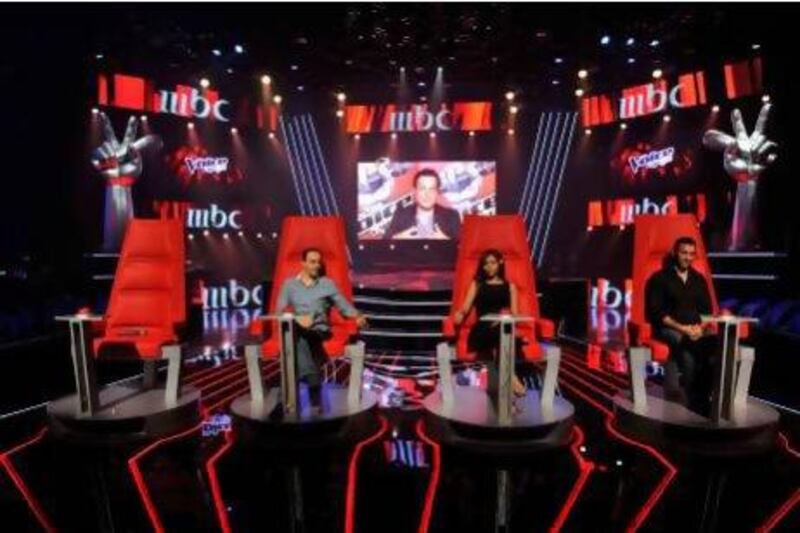Reality TV is one of the fast growing genres in the region, according to a report by twofour54.
The Abu Dhabi-based media and entertainment hub recently released a white paper commenting on the rise of the popular format, stating its deficiencies and cultural benefits.
The paper, Growth of Reality TV Genre in Pan-Arabian Television, traces the genre back to 1998, when MBC commissioned a series of Arabic versions of popular shows such as Wipeout, Spellbound and Hilarious Hits for the Ramadan season.
The success of these programmes allowed the Dubai-based channel to splash out on the exclusive Arab rights for Who Wants to Be a Millionaire.
The report states that the programme's bumper ratings proved to be the "turning point", after which MBC found further success with Arabic versions of The Voice, Idol and the Got Talent franchises. MBC's ascent is set to continue as it prepares to launch another reality programme - which could be the return of Arab Idol - in Cairo next week.
"The reason why [reality] formats travel well around the world is because you already have a wealth of experience when you bring the format to the region," says the Sony Pictures Arabia president Ziad Kebbi, who also contributed to the report.
The report suggests that purchasing popular television formats is a tried, tested and safe way for television producers to generate ratings and revenue.
"Because adapting a format is less risky than creating a brand new programme, risk averse Arab producers started relying heavily on them," the report says.
"Besides reducing risk, reality TV formats offer opportunities of cost cutting by substituting real people for expensive stars."
MBC Group's spokesman Mazen Hayek disagrees, stating successful formats are not purchased for financial success alone.
He says that such formats have the hidden effects of training local producers, directors and technicians.
"They contribute in putting the Arab world on the global entertainment map," he says. "We learn a lot from these global formats because they come with an A-Z [guide]."
The paper says the side effect of channels amassing global reality television programming is that it can result in culturally insensitive products.
The report detailed MBC's failed 2004 experiment with Al Rais, an Arabic version of the globally popular Big Brother.
The programme was abruptly pulled off air amid a public outcry regarding the antics of some contestants.
While Hayek refrains from commenting on the Big Brother fiasco, he says that all MBC's programmes are vetted for cultural compatibility.
"The category of reality TV in the definition of having contestants sleeping in together and spending months together for the purpose of a TV show - we don't have them because, culturally and traditionally, they are not relevant," he says.
"But if the extended definition [of reality television] extends to global talent-spotting shows, then MBC is the strongest. There is no connotation of having the television cameras turned on 24 hours a day watching how they sleep, eat, dress and what they say to one another."
The report concludes by praising Abu Dhabi TV (run by Abu Dhabi Media, which owns The National) for using the reality television format to showcase Emirati culture.
It signalled Shae'r Almalyoun, a poetry competition similar to the Idol format, for exploring "aspects of the local culture that are not part of day-to-day television such as Najd poetry".
Download the paper from www.twofour54.com






